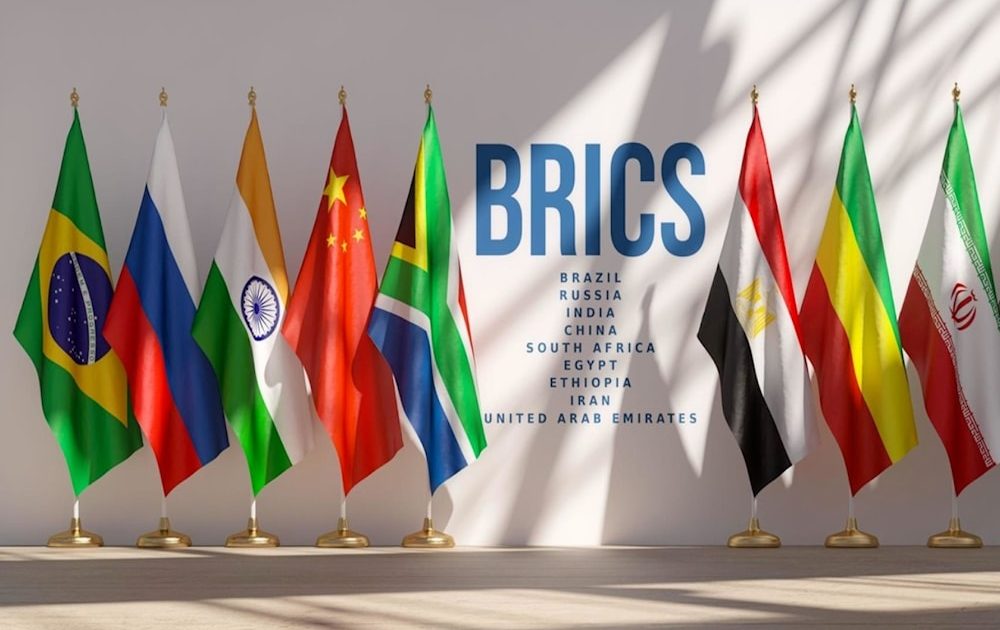The BRICS bloc, comprised of Brazil, Russia, India, China, and South Africa, convened a virtual summit to address mounting concerns over rising protectionism and “tariff blackmail” in international trade, primarily attributed to the policies of former US President Donald Trump. The meeting, initiated by Brazilian President Luiz Inácio Lula da Silva, underscored the urgency of confronting the escalating unilateral measures impacting global trade. The BRICS nations, representing a substantial portion of the world’s GDP and population, have found themselves disproportionately affected by these trade practices. Lula explicitly denounced the use of tariffs as a coercive tool for market manipulation and interference in domestic affairs, echoing the sentiments of other member states. The summit served as a platform for these emerging economies to collectively voice their concerns and strategize against the perceived threat to their economic interests.
The central theme of the BRICS summit revolved around upholding a rules-based multilateral trading system. Chinese President Xi Jinping emphasized the importance of the World Trade Organization (WTO) as the cornerstone of global trade governance, advocating for the rejection of protectionist measures. This call for a multilateral approach reflects the BRICS nations’ shared interest in maintaining a stable and predictable international trading environment, contrasting sharply with the unilateralism espoused by the Trump administration. The summit illustrated the growing unease among emerging economies about the potential for trade wars to disrupt global growth and destabilize international relations. It also underscored the importance of collective action within the BRICS framework to counter protectionist pressures and advocate for a more open and inclusive global trading system.
The context of the BRICS summit was heavily influenced by specific trade disputes between the United States under Trump and several BRICS members. Brazil, for instance, experienced a significant decline in exports to the US after Trump imposed hefty tariffs. This action was seemingly motivated by political considerations, specifically related to the trial of former Brazilian President Jair Bolsonaro. Similarly, India faced increased tariffs on its exports to the US, ostensibly due to its purchase of Russian oil. South Africa also became a target of US tariff hikes, further exacerbating tensions between the two countries. These instances underscore the perception that Trump’s trade policies were often driven by political motivations rather than purely economic considerations, creating a sense of instability and unpredictability in international trade relations. The BRICS summit provided a forum for these affected nations to discuss these challenges and explore coordinated responses.
The timing of the BRICS summit coincided with other significant international gatherings, highlighting the broader geopolitical context within which trade tensions were unfolding. Shortly before the BRICS meeting, Xi Jinping, Vladimir Putin, Kim Jong Un, and Narendra Modi met in China, where they collectively criticized “bullying behaviour” in international relations, a thinly veiled reference to the United States under Trump. This convergence of events suggests a growing alignment among these nations in their opposition to what they perceive as aggressive and unilateral US foreign policy. Furthermore, Trump’s decision to boycott the G20 summit in South Africa later that year further strained relations and demonstrated the growing rift between the US and several key emerging economies. The BRICS summit, therefore, provided a platform for these nations to consolidate their positions and articulate a shared vision for global governance.
The specific criticisms levelled by the BRICS nations at the Trump administration’s trade policies paint a picture of a global trade order under strain. The term “tariff blackmail,” used by Lula, encapsulates the sentiment that tariffs were being wielded as a coercive instrument rather than a legitimate trade policy tool. This concern was echoed by South African President Cyril Ramaphosa, who warned that unilateral tariff actions were contributing to a more protectionist global environment, posing significant challenges, particularly for developing countries. These criticisms highlight the perceived unfairness and destabilizing effects of unilateral trade actions on the global economy, emphasizing the need for a more cooperative and rules-based approach. The BRICS summit served as a platform to articulate these concerns and advocate for a more equitable and predictable global trading system.
Despite the challenges posed by rising protectionism, the BRICS nations reaffirmed their commitment to promoting an open global economy. Xi Jinping reiterated the importance of sharing opportunities and achieving mutually beneficial outcomes through open trade. This statement underscores the BRICS nations’ belief that a cooperative and open trading system ultimately benefits all participants. The summit served as a forum for these nations to reaffirm their shared vision for a more integrated and inclusive global economy, despite facing headwinds from protectionist policies. It emphasized the potential for collective action within the BRICS framework to counter these pressures and to advocate for a more open, predictable, and rules-based trading system that benefits all countries, particularly those in the developing world. The expansion of BRICS membership to include other significant emerging economies further demonstrates the growing influence of this bloc in shaping the future of global trade and governance.


